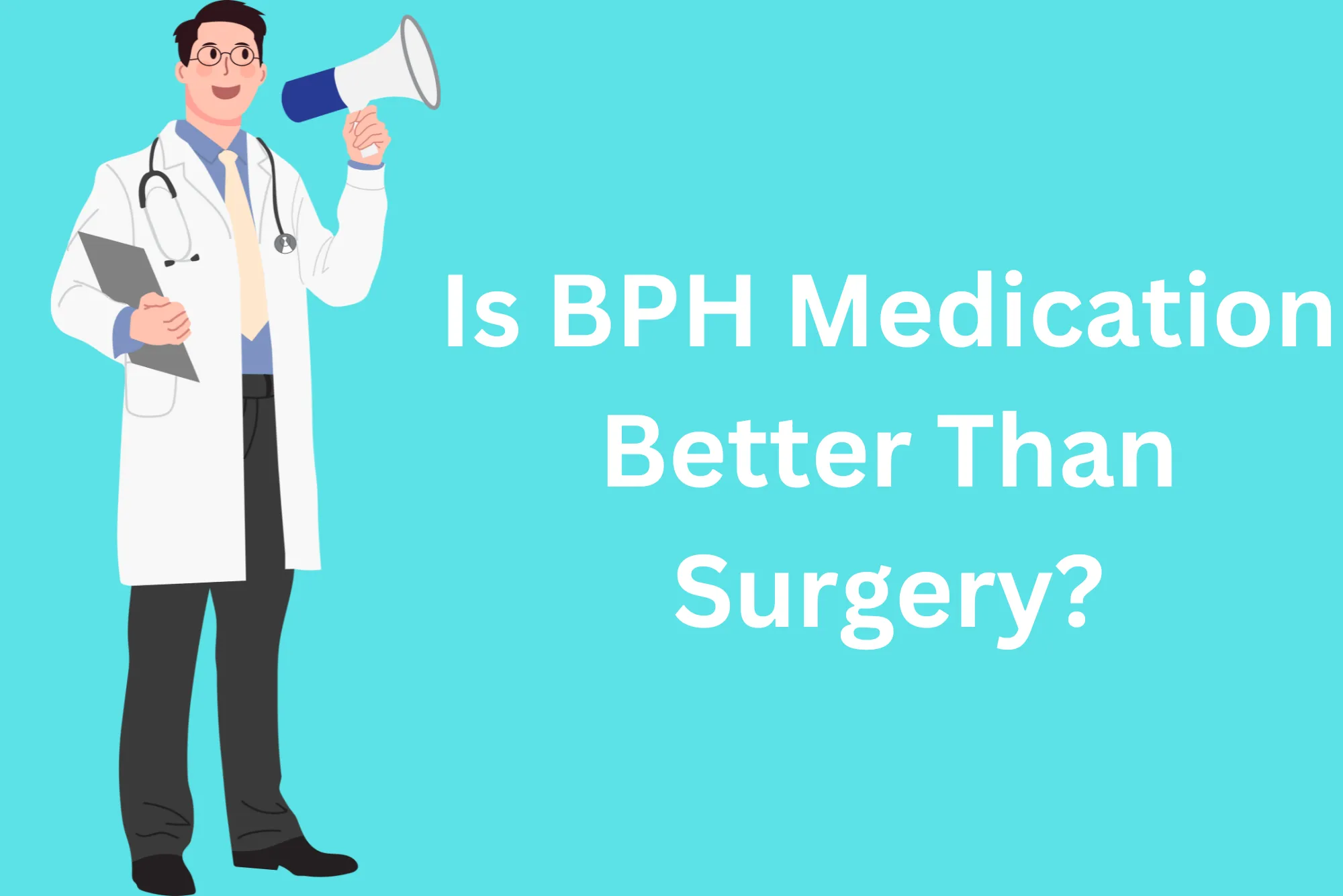Benign Prostatic Hyperplasia (BPH) is a common condition among aging men, leading to urinary difficulties and discomfort. When it comes to treatment, patients often wonder whether medication or surgery is the better option. Both approaches have their advantages and drawbacks, and the right choice depends on individual health factors, symptom severity, and personal preferences. Understanding these options can help patients make informed decisions about managing their prostate health effectively.
Understanding BPH and Its Impact
BPH is a non-cancerous enlargement of the prostate gland that affects urination by blocking the flow of urine. As the prostate grows, it compresses the urethra, leading to symptoms such as frequent urination, weak urine stream, urgency, and incomplete bladder emptying. If left untreated, severe cases can lead to complications like urinary retention, bladder infections, or kidney problems. Choosing the right treatment is essential for improving quality of life and preventing further complications.
When Is Medication Recommended for BPH?
Medication is often the first line of treatment for BPH, especially for men with mild to moderate symptoms. Several classes of drugs help manage the condition by either relaxing the prostate muscles or reducing prostate size. The most commonly prescribed medications include:
Alpha-Blockers
These medications, such as tamsulosin and alfuzosin, work by relaxing the muscles around the prostate and bladder neck, improving urine flow and reducing symptoms.
5-Alpha Reductase Inhibitors
Drugs like finasteride and dutasteride help shrink the prostate gland by blocking the conversion of testosterone into dihydrotestosterone (DHT), which contributes to prostate growth. This option is particularly effective for men with significantly enlarged prostates.
Combination Therapy
For men with more severe symptoms, doctors may prescribe a combination of alpha-blockers and 5-alpha reductase inhibitors to provide more comprehensive relief.
To explore the best medicine for BPH, patients should consult a healthcare professional to determine the most suitable option based on their condition.
Advantages and Limitations of BPH Medication
Benefits of Medication
- Non-invasive and easy to administer
- Effective in reducing symptoms for many patients
- Lower risk of complications compared to surgery
- Can be adjusted or discontinued based on patient response
Drawbacks of Medication
- May take several months to show noticeable improvement
- Possible side effects, such as dizziness, sexual dysfunction, and low blood pressure
- Requires lifelong adherence for sustained relief
- Less effective for severe cases of prostate enlargement
When Is Surgery Recommended for BPH?
Surgical intervention is considered when medication fails to provide adequate symptom relief or when complications arise. Various surgical procedures are available, ranging from minimally invasive treatments to more complex surgeries.
Transurethral Resection of the Prostate (TURP)
TURP is one of the most common surgical procedures for BPH. It involves removing excess prostate tissue using a resectoscope inserted through the urethra. This procedure offers significant symptom relief and improved urine flow.
Laser Therapy
Laser surgery, such as Holmium Laser Enucleation of the Prostate (HoLEP) or GreenLight laser therapy, removes or vaporizes prostate tissue with minimal bleeding and a faster recovery period compared to TURP.
Prostatic Urethral Lift (UroLift)
This minimally invasive procedure involves placing small implants to hold the enlarged prostate away from the urethra, relieving obstruction and improving urinary flow.
Open Prostatectomy
For extremely large prostates, an open prostatectomy may be required. This involves surgically removing the enlarged prostate tissue through an incision in the abdomen.
To learn more about BPH treatment options, consulting a urologist is essential for personalized recommendations.
Pros and Cons of BPH Surgery
Benefits of Surgery
- Provides long-term relief from symptoms
- Eliminates the need for lifelong medication
- Effective for severe cases of BPH
- Can improve overall quality of life
Drawbacks of Surgery
- Involves risks such as bleeding, infection, and urinary incontinence
- Requires recovery time, ranging from a few days to several weeks
- Some procedures may cause sexual dysfunction or retrograde ejaculation
- Higher initial cost compared to medication
Comparing Medication and Surgery for BPH
The decision between medication and surgery depends on various factors, including symptom severity, overall health, and patient preference. For men with mild to moderate symptoms, medication is a safe and effective first-line option. However, for those with severe enlargement or complications, surgery may provide more lasting relief.
Who Should Choose Medication?
- Men with mild to moderate BPH symptoms
- Patients who prefer a non-invasive approach
- Those who can tolerate long-term medication use
- Individuals without complications such as urinary retention or kidney damage
Who Should Consider Surgery?
- Men with severe urinary obstruction or chronic infections
- Patients who do not respond well to medication
- Those experiencing significant lifestyle disruptions due to BPH symptoms
- Individuals looking for a long-term solution without relying on medication
Cost Considerations and Insurance Coverage
The cost of BPH treatment varies depending on the chosen approach. Medications require ongoing expenses, while surgical procedures may have a higher upfront cost but eliminate the need for continuous treatment. Many health insurance plans cover BPH treatments, but coverage details vary. Patients should consult their insurance providers to understand their options.
Lifestyle Changes to Support BPH Management
Regardless of the chosen treatment, certain lifestyle modifications can improve BPH symptoms and overall prostate health. These include:
- Maintaining a balanced diet rich in fruits, vegetables, and healthy fats
- Engaging in regular exercise to reduce inflammation and improve circulation
- Limiting caffeine and alcohol intake to prevent bladder irritation
- Practicing pelvic floor exercises to strengthen bladder control
- Staying hydrated while avoiding excessive fluid intake before bedtime
For more in-depth health-related insights and expert analysis, visit Ground Facts. Stay updated on the latest medical advancements and wellness strategies to enhance your health.








